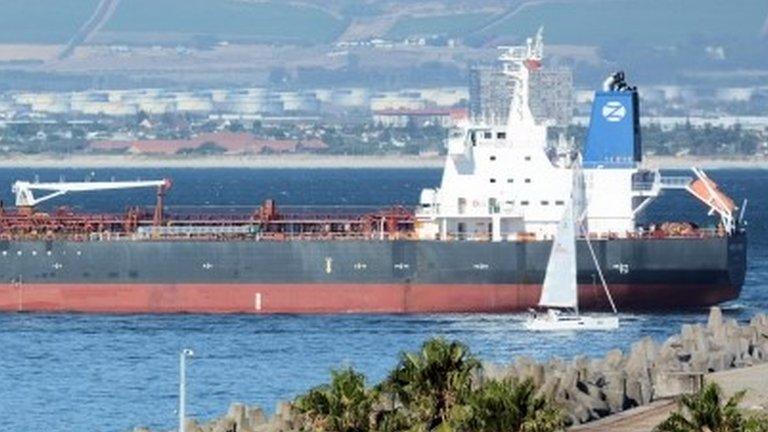West faces dilemmas over tanker attack
- Published
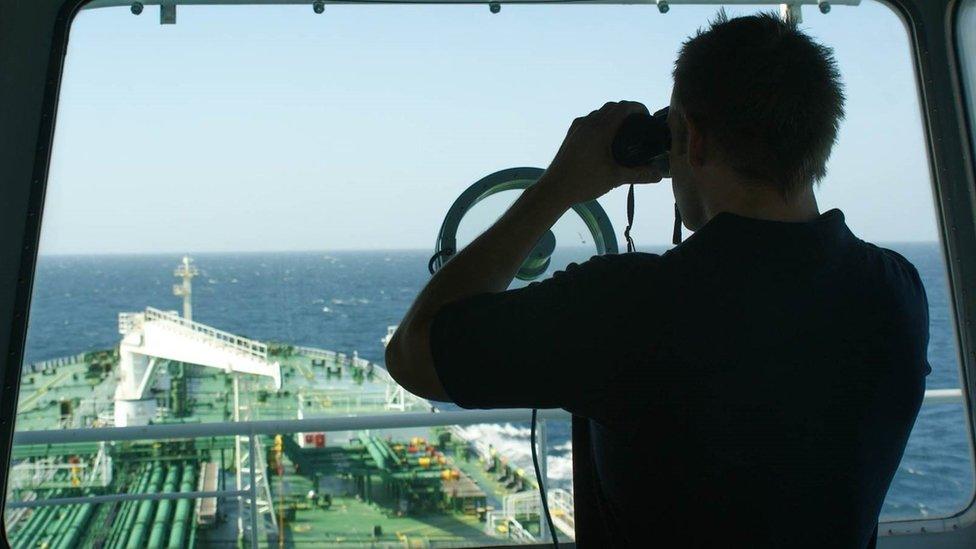
Merchant ships in the Gulf of Oman employ security guards to deter pirates. Photo: Frank Gardner
Angry words are being traded, diplomats are being summoned to foreign ministries and threats of retaliation made public after a deadly drone attack on a merchant tanker last week. Britain, the US and Israel all blame Iran, which has vehemently denied it while vowing a severe response to anything that harms its interests. So what exactly happened and what's behind this?
On Thursday 29 July the MV Mercer Street, a medium-sized fuel tanker, was sailing without cargo off the coast of Oman on its way from Dar Es Salaam in Tanzania to the UAE refuelling port of Fujairah on the Gulf of Oman. The vessel is Liberian-flagged and Japanese-owned but operated by an Israeli-owned company, Zodiac Maritime.
Late in the day the tanker was struck by an explosive-laden Unmanned Aerial Vehicle, or drone, that exploded close to the bridge, damaging the nearby living quarters. Two people were killed - a Romanian and a British security guard - and after putting out a mayday distress radio call the tanker was then escorted to port by two US Navy warships.
There have been several previous attacks on Israeli-linked shipping this year, all blamed on Iran and all denied by Tehran. Israel is also presumed to have been behind a mysterious explosion on the hull of an Iranian military supply ship, the Saviz, in April in the Red Sea.
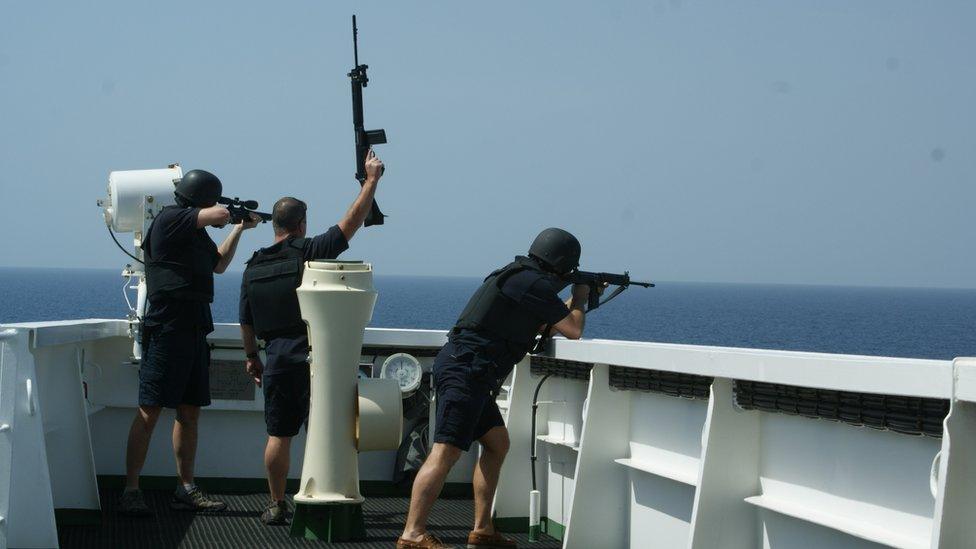
These British maritime security guards are "showing weapons" to ward off pirates from the bridge of a merchant tanker. Photo: Frank Gardner
This is all part of what's been called "the shadow war" between Iran and Israel. It's a dangerous game of tit-for-tat that includes Israel's suspected assassinations of Iranian nuclear scientists and its successful attempts to sabotage Iran's nuclear development programmes.
Up until now, no-one has been killed in the attacks on shipping.
An intelligence blunder?
If, as Britain, the US and Israel claim, Iran was behind the attack then it was almost certainly a blunder by Iranian intelligence. Its quarrel is primarily with Israel so dragging in a permanent member of the UN Security Council - Britain - by killing a British national has brought on a heap of diplomatic opprobrium.
Boris Johnson has said Iran must "face up to the consequences of its actions" calling it "an unacceptable and outrageous attack on commercial shipping".
Iran's Ambassador to the UK, Mohsen Baharvand, was summoned to the Foreign Office to be told his country must immediately cease actions that threaten international shipping. Iran has issued an angry denial, demanding to see proof of its alleged complicity in the attack. Its foreign ministry has issued its own summons to Britain's Chargé d'Affaires in Tehran, calling the accusations made by Britain, Israel and the US "baseless propaganda".
A painful message
Those three countries have all vowed to respond and while publicly they maintain a united stance they do have differing agendas. Britain and the US are eager to revive the 2015 nuclear deal with Iran, the so-called Joint Comprehensive Plan of Action (JCPOA) that imposed stringent curbs on Iran's civil nuclear programme in exchange for the lifting of tough economic sanctions.
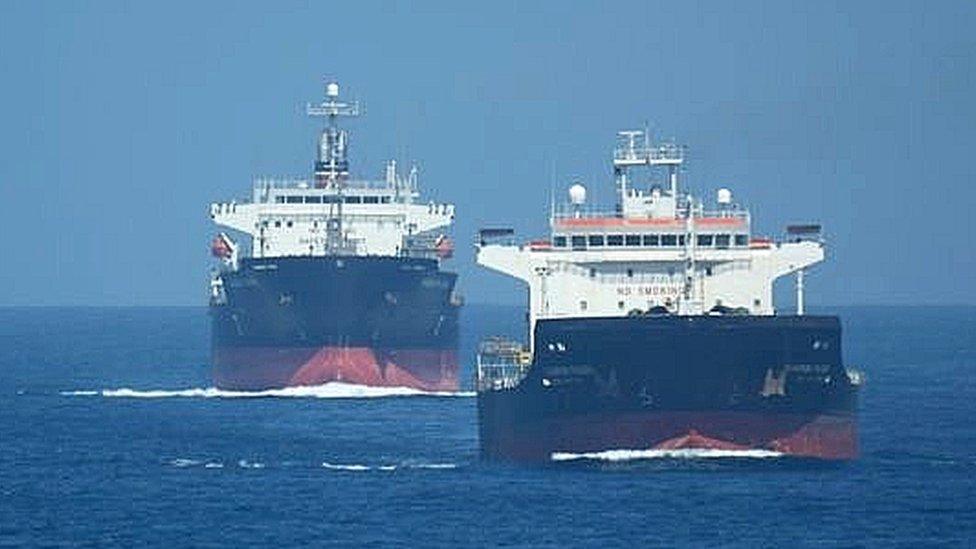
The Gulf of Oman connects the Arabian Sea with the Strait of Hormuz - a key shipping route. Photo: Frank Gardner
That deal has all but ceased to be effective after President Donald Trump unilaterally pulled America out of it in 2018. Talks have been ongoing in Vienna but Israel is no fan of the deal, believing it to be just a fig leaf for suspected Iranian nuclear research. That's why when Israel says "it will be sending a message to Iran that it will understand" it could well be a more painful and provocative one than the US and Britain would like.
Israel's Mossad intelligence service has been extraordinarily effective at penetrating Iran's security establishment so it's a threat likely to be taken very seriously in Tehran.
Finally, there is the dilemma facing those Western governments over what intelligence around the attack, if any, to make public. Iran says: if you have proof of our complicity then let's see it. But whatever intelligence has been gathered will almost certainly include covert sources and possibly sensitive Signals Intelligence (SIGINT) intercepts that British and American spies would prefer Iran not to know about.
Yet if they fail to make public the so-called "smoking gun" that leads to Iran then many will say, as they already are doing on social media, that this is all just a made-up excuse to punish Iran for something it hasn't done.
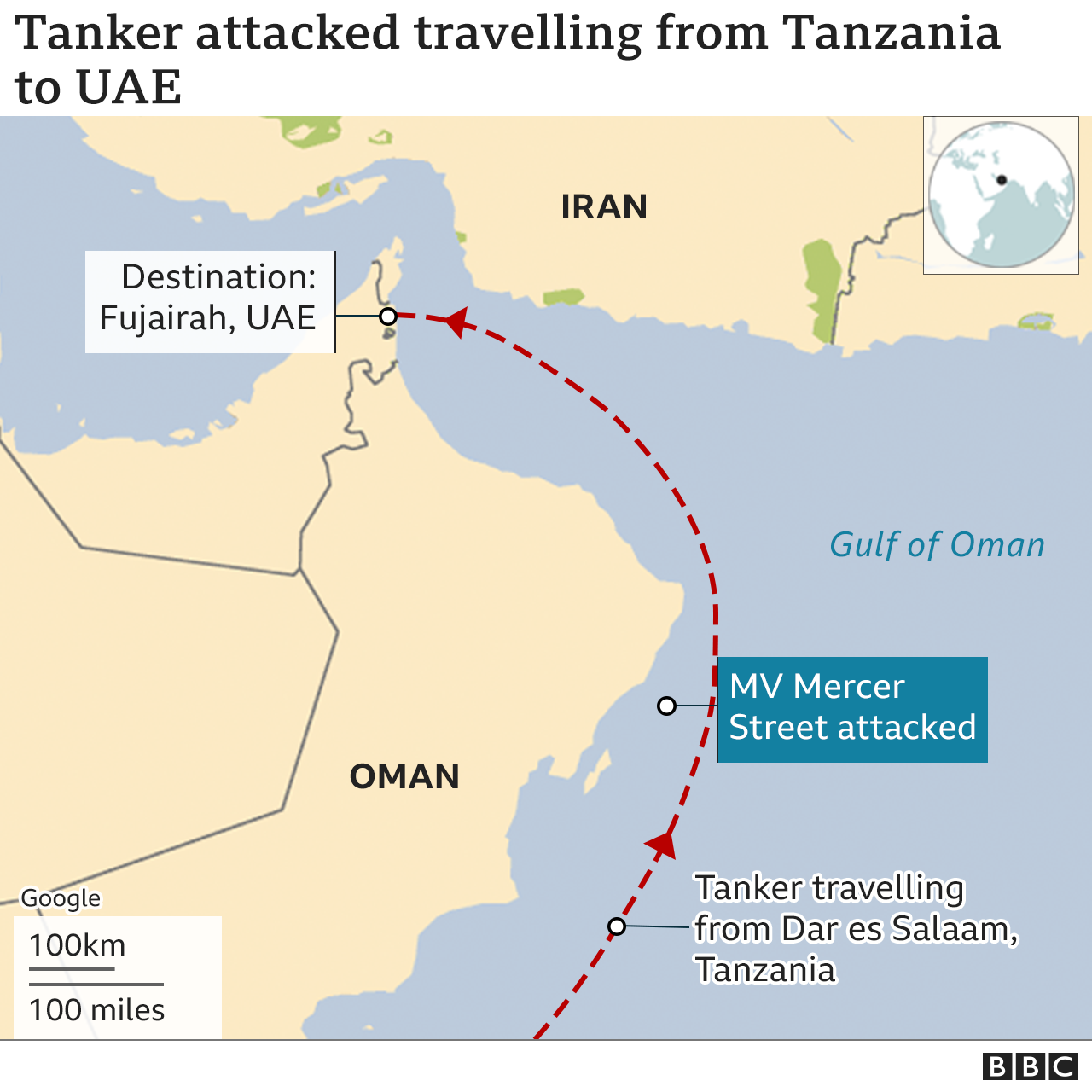
Related topics
- Published13 April 2021

- Published2 August 2021
